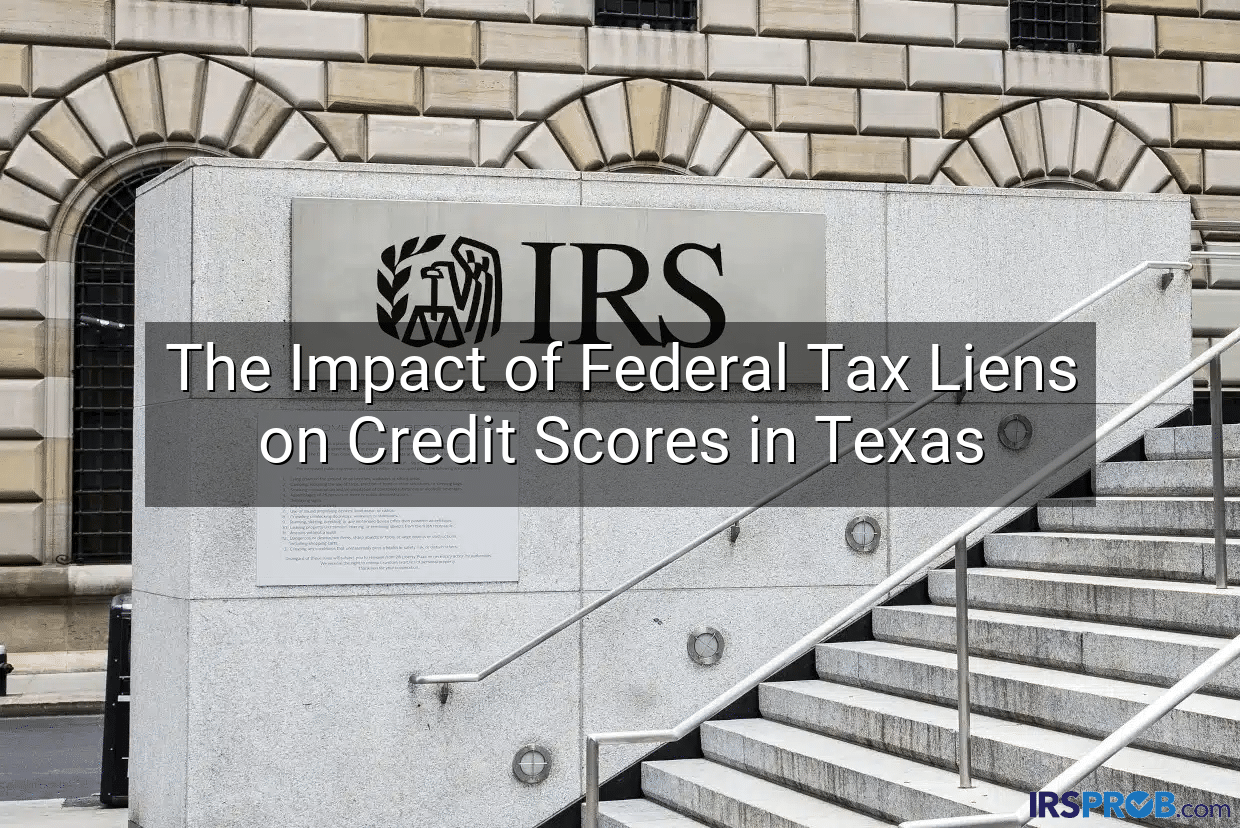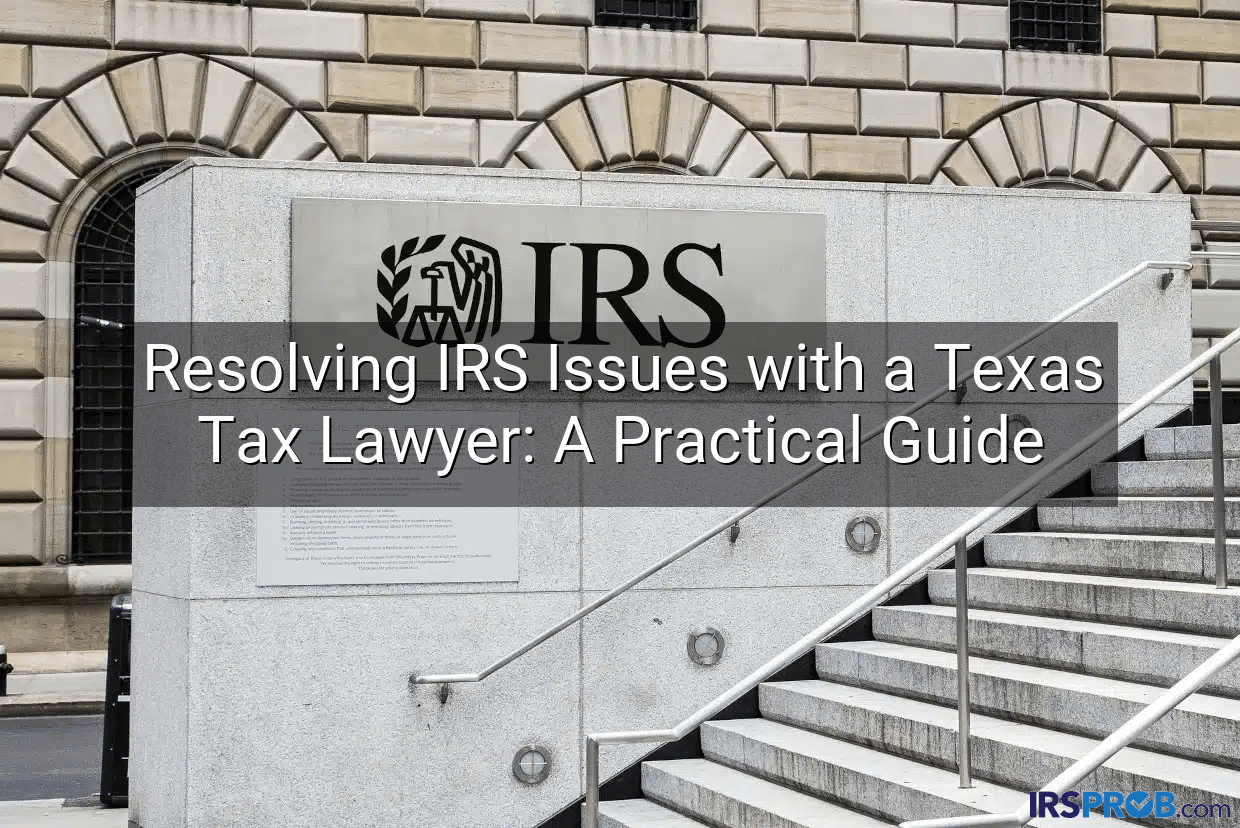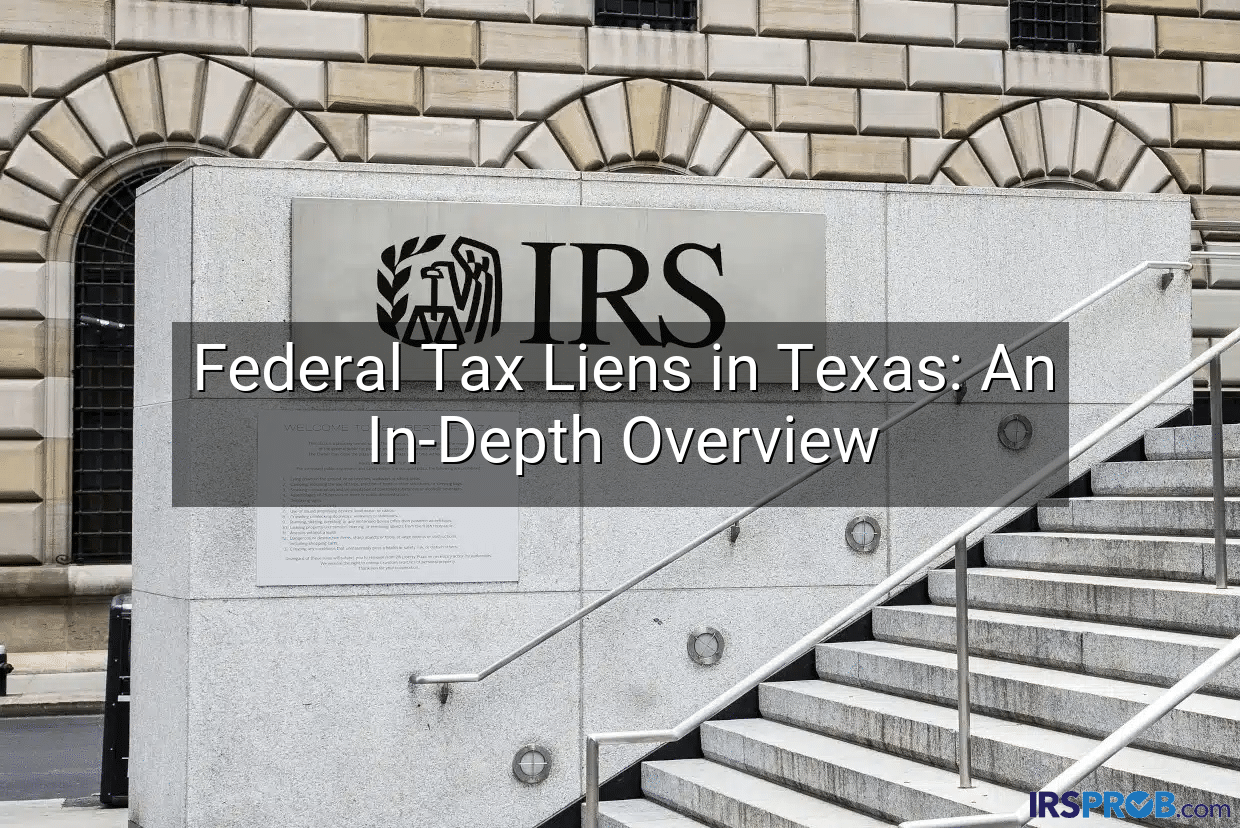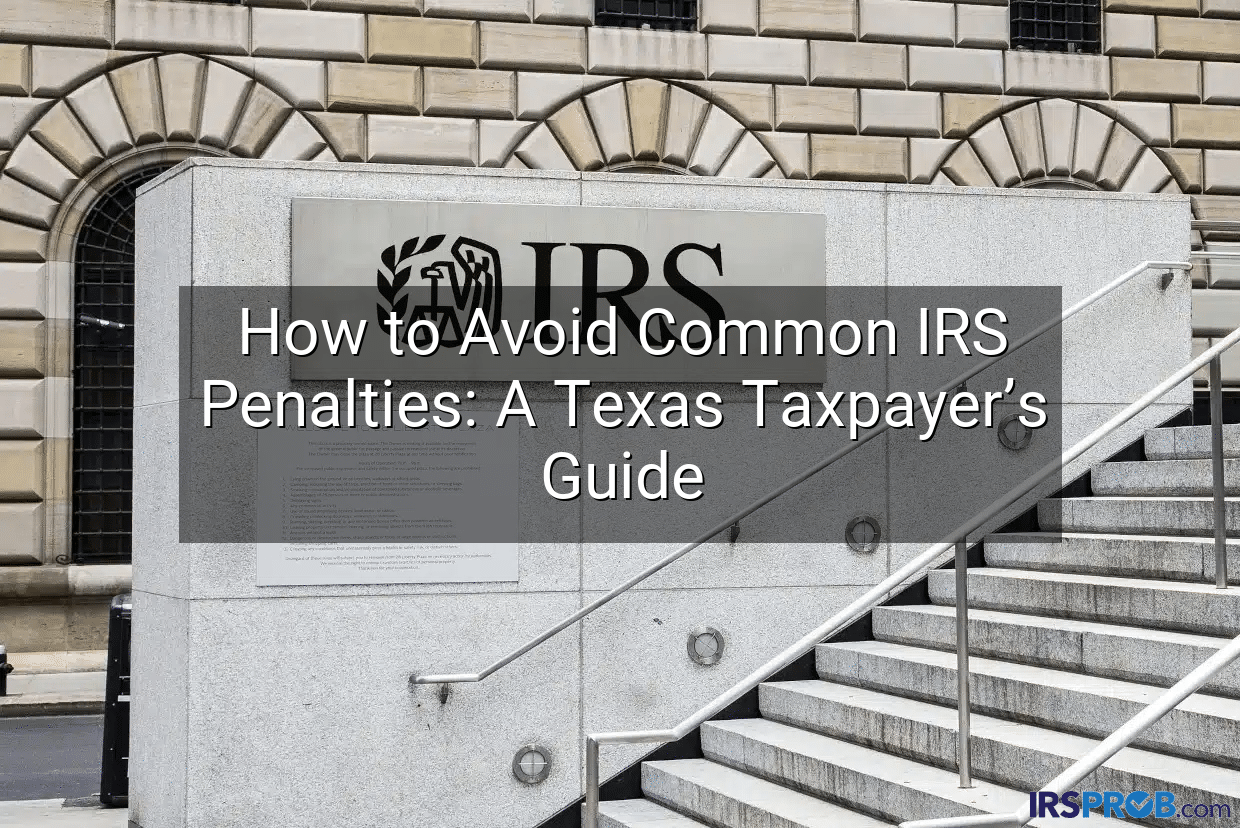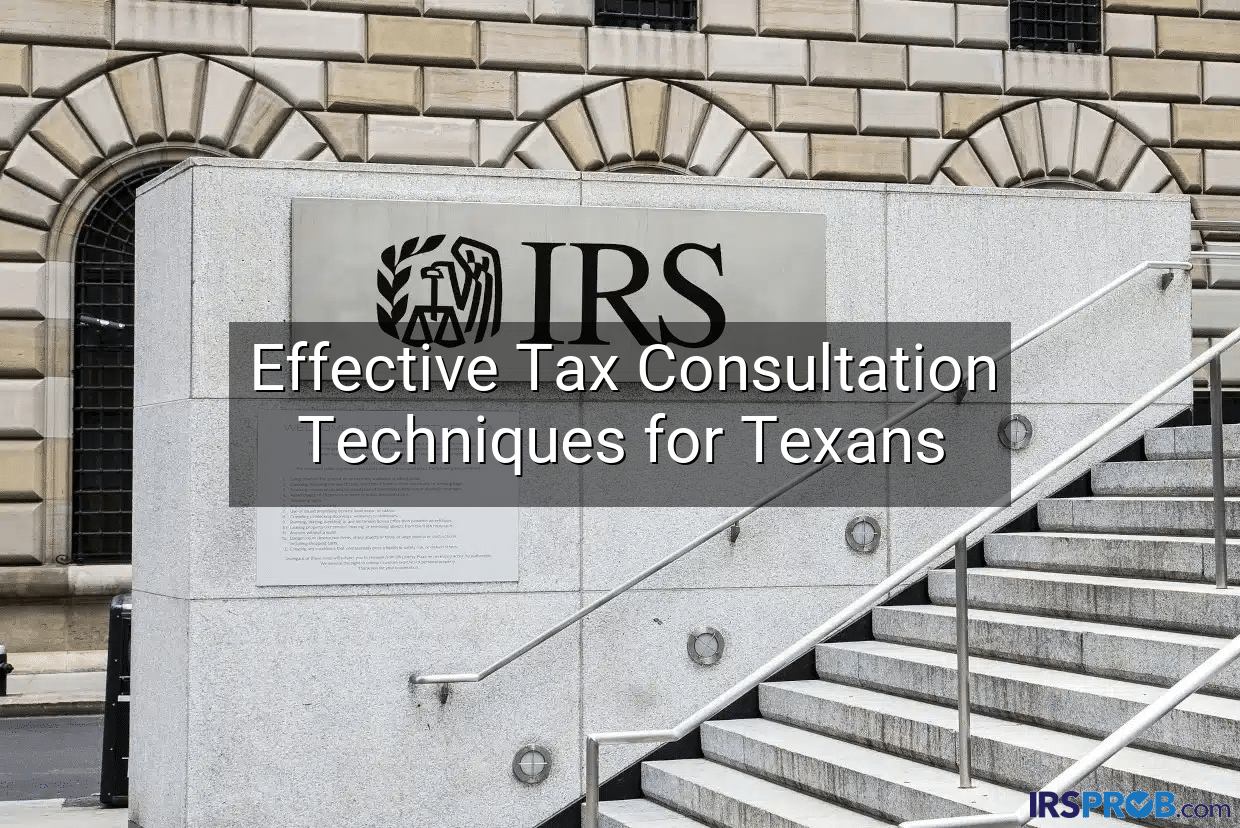Insight into Federal Tax Liens and Their Impact on Credit Scores in Texas
Understanding the intersection of federal tax liens and credit scores is crucial for anyone striving to maintain financial stability, particularly in Texas where significant property investments are common. Federal tax liens are legal claims imposed by the Internal Revenue Service (IRS) when taxpayers fail to pay their federal taxes, and the repercussions of these liens can extend far beyond immediate financial obligations. They often lead to a protracted negative impact on your credit history, affecting future creditworthiness and your ability to obtain loans or mortgage financing.
In Texas, the effects of federal tax liens are compounded by unique local financial trends and state-specific real estate considerations. The sheer scale of real estate investments in Texas means that a lien can have significant collateral consequences—whether you’re trying to sell your property or secure a new home loan. Moreover, due to Texas’ robust economic climate, these liens are under greater scrutiny, affecting both personal and commercial financing decisions.
This article is designed to provide a thorough analysis of federal tax liens and offer practical strategies for managing and mitigating their impact on your credit score. We will also discuss how understanding the credit reporting system, engaging with credit repair strategies, and seeking professional advice can be integrated into a broader financial recovery plan. By preparing yourself with this knowledge, you can better protect your financial future and make informed decisions that honor both federal and Texas-specific regulations.
Read on as we delve deeply into the various aspects surrounding federal tax liens and explore effective strategies for minimizing their long-term effects on your financial health. Empower yourself with knowledge and actionable steps that can lead you back to a stable financial footing.
Understanding Federal Tax Liens: An Overview
Federal tax liens occur when the Internal Revenue Service (IRS) files a legal claim against a taxpayer’s property due to outstanding tax debts. This claim signifies that the government has a legal right to a taxpayer’s property, either real or personal, until the debt is fully satisfied. This measure is meant to secure the government’s interest in collecting the debt owed, ensuring that creditors have a viable means of recourse if the taxpayer defaults on payments.
The process begins when the IRS notifies the taxpayer of a deficiency and the need to settle outstanding tax bills. If the taxpayer fails to respond adequately to the notice with either payment or an acceptable arrangement, the IRS can proceed to file a federal tax lien. This lien then becomes a matter of public record, marking the taxpayer’s credit report and alerting lenders to potential risks associated with extending credit.
While the idea of federal tax liens may seem daunting, understanding how these liens work and what triggers them is the first step in managing their impact. It is vital to realize that while a lien can remain on a credit report for several years, its influence might diminish over time with proper financial management and eventual tax resolution.
Moreover, taxpayers have the opportunity to negotiate with the IRS through options like installment agreements or offers in compromise to mitigate or even remove the lien once the tax liability is addressed. Being proactive and communicating with the IRS can pave the way toward restoring one’s financial reputation.
Historically, filing a federal tax lien has been viewed as a serious blemish on a credit history. However, knowing the implications and exploring potential remedies can help mitigate its impact. By understanding your rights and the available options, you can actively work toward repairing your credit score while addressing the root cause of the lien.
How Federal Tax Liens Affect Your Credit Score
One of the most significant ramifications of a federal tax lien is its effect on your credit score. Once a lien is filed, it becomes a matter of public record and is reported to the major credit bureaus. This event signals a serious default to creditors, creating a red flag for potential lenders and adversely affecting your creditworthiness.
The impact on your credit score can be severe. Credit scoring models consider federal tax liens as indicators of financial distress. This not only results in a drop in your credit score but can also affect your ability to secure financing at favorable interest rates. In many cases, the lien will linger on your credit report for up to seven years, even after you have resolved the underlying tax issue.
Federal tax liens reduce your overall credit profile by adding a negative mark that can be difficult to remove. When lenders review your credit report, federal tax liens suggest you have defaulted on a significant financial obligation, which could lead them to doubt your overall reliability as a borrower. This skepticism might result in higher interest rates, stricter loan terms, or even outright denial of credit applications.
It is important to note that the severity of these adverse effects can depend on various factors, including the size of the tax debt, the timing of the lien, and subsequent financial behavior. Consistently maintaining timely payments on other debts, actively working to resolve the lien, and fostering an overall positive credit history can gradually help mitigate the damage.
Furthermore, addressing a federal tax lien quickly by resolving the underlying issue or establishing a payment plan with the IRS can demonstrate to lenders that you are proactive in managing your debts. This proactive approach, combined with sound credit practices, can help in gradually rebuilding your credit score over time.
Texas-Specific Considerations for Federal Tax Liens
While federal tax liens affect taxpayers across the nation, Texas presents its own unique considerations when it comes to these liens and their impact on credit. Texas’ economic environment, with its vibrant real estate market and significant business activities, means that the repercussions of a lien are often amplified within the state.
In a state known for its robust property market, having a federal tax lien can pose serious hurdles when engaging in real estate transactions. Prospective buyers or lenders often scrutinize the credit history and legal standing of sellers, and a federal tax lien can cast a long shadow on an otherwise healthy financial record. This is particularly concerning in Texas, where property transactions often involve substantial sums and long-term financial commitments.
Texas also has its own set of legal and regulatory frameworks that intersect with federal tax laws. For instance, while federal law governs the filing of tax liens, state law may influence how quickly these liens are resolved in relation to property rights or the execution of payments. Taxpayers in Texas may benefit from localized legal counsel or financial advisors who specialize in both federal and Texas state regulations, ensuring that the process to clear liens is as efficient as possible.
In addition, economic trends in Texas, such as fluctuating property values and a dynamic job market, mean that any adverse credit impact, especially one as significant as a federal tax lien, can have widespread repercussions. For homeowners and business owners alike, understanding the local nuances is critical. This knowledge aids in negotiating with lenders and managing expectations, particularly when planning to refinance or secure additional credit.
Finally, Texas has several programs and resources available through both public and private sectors aimed at helping individuals manage financial distress. Local nonprofit organizations and financial counseling services are well-versed in the challenges posed by federal tax liens and can offer tailored advice to residents looking to mitigate their impact.
Navigating the Process to Resolve Federal Tax Liens
Dealing with a federal tax lien is a multi-step process that requires both proactive and reactive measures. The first and perhaps most crucial step is understanding the extent of the lien and engaging directly with the IRS to explore your options. Many taxpayers find that once a lien is filed, the path to resolution involves a combination of negotiation and timely financial management.
The resolution begins by thoroughly reviewing all correspondence sent by the IRS. It is important to confirm that the lien is accurate and that all pertinent details are in order. In cases where discrepancies arise, the taxpayer has the right to dispute the lien. This is a critical step that may involve presenting evidence of payments made, negotiating for reduced liability, or correcting errors in the filing.
Once the validity of the lien is established, the next step is to either pay the outstanding tax debt in full or arrange for an installment agreement with the IRS. An installment agreement allows the taxpayer to pay off the outstanding balance over time, demonstrating a commitment to resolving the debt while preserving liquidity for other financial obligations.
Another option is the Offer in Compromise program, which may enable a taxpayer to settle the debt for less than the full amount owed under specific conditions. However, this process is rigorous and requires thorough documentation of financial circumstances. Consulting with a tax professional or attorney who specializes in IRS negotiations can be invaluable during this stage.
Throughout the resolution process, maintaining consistent and accurate financial records is crucial. This documentation can not only help in negotiations with the IRS but also serve as evidence for credit agencies when the lien is eventually released. Once the debt is paid, confirming the release of the lien with both the IRS and credit bureaus ensures that your credit report reflects the updated status.
Common Misconceptions and Essential Facts
There are several pervasive myths surrounding federal tax liens and their impact on credit scores, particularly as they relate to Texas. One widespread misconception is that a federal tax lien automatically and permanently ruins your credit score. While it is true that liens can have a lasting negative impact, their effect is not necessarily irreversible if addressed strategically.
Another misconception is that the only solution to a tax lien is paying off the entire amount in one lump sum. Many taxpayers are unaware of the various resolution options available, such as installment agreements or offers in compromise, which can provide feasible alternatives to a full immediate payment. These programs can be particularly beneficial for those facing financial hardship.
It is also commonly believed that once a lien is filed, it continues to affect your credit report indefinitely. Although federal tax liens can remain on your credit history for up to seven years, the impact of the lien on your overall credit score may lessen over time, especially with consistent positive credit behavior and proactive debt management.
Additionally, some believe that resolving a federal tax lien will instantly restore your credit score. The reality is that rebuilding your credit takes time; lenders will still consider your past financial difficulties as part of their credit risk assessment. However, showing that you have taken concrete steps to resolve the issue will gradually bolster your creditworthiness.
Lastly, while federal tax liens are a significant concern, they are not unique to Texas. However, given Texas’ strong real estate market and dynamic economic landscape, the ripple effects of these liens might feel more pronounced. Understanding these misconceptions and the underlying facts is critical, as it allows you to adopt a more realistic and proactive approach to managing your credit.
Proactive Strategies for Protecting and Rebuilding Your Credit
Taking charge of your financial health requires a proactive strategy when dealing with the aftermath of a federal tax lien. With a clear focus on rebuilding your credit score, it’s important to initiate steps that not only repair the damage but also prevent further deterioration of your credit in the future. One of the key strategies involves establishing a consistent payment history across all obligations.
Maintaining a disciplined approach to managing your finances—by paying bills on time, reducing debt balances, and regularly monitoring your credit reports—is fundamental. Financial institutions and lenders favor borrowers who demonstrate fiscal responsibility over an extended period. Therefore, each small step towards maintaining or even improving your payment records can contribute substantially to a long-term elevation of your credit score.
Another vital strategy is the use of credit counseling and professional advice. Whether through nonprofit organizations or certified financial advisors, expert guidance can help you navigate the complexities of credit repair post-federal tax lien. These professionals can provide tailored advice that addresses your unique financial situation, suggesting specific actions aimed at gradually restoring your creditworthiness.
Additionally, consider diversifying your credit mix after resolving the lien. This might involve obtaining secured credit cards or small loans, which, when managed responsibly, can help demonstrate a renewed commitment to sound credit practices. Keep in mind that rebuilding credit is a marathon, not a sprint, and patience is key to regaining confidence from lenders.
Furthermore, for those residing in Texas, it’s essential to leverage local resources such as seminars, financial literacy workshops, and community outreach programs. These resources offer invaluable insights into managing debt and rebuilding credit, and being part of an informed community can provide both support and accountability.
Financial Planning and Preventative Measures for the Future
Looking forward, creating a robust financial plan is critical in preventing future issues related to federal tax liens. Financial planning in this context means more than merely reacting to adverse credit events; it involves establishing sustainable practices that fortify your financial standing against unexpected setbacks. Begin by building a comprehensive budget that accounts for current debt obligations, anticipated expenses, and proactive savings.
Budgeting allows you to set aside funds specifically for tax obligations, ensuring that you can meet IRS deadlines before a lien becomes necessary. This foresight minimizes the risk of incurring additional financial penalties and preserves a positive credit history. Moreover, having a well-structured budget can serve as a deterrent to overspending, ultimately shielding you from accumulating unmanageable debt.
In addition to budgeting, consider setting up an emergency fund. Financial experts recommend that this fund cover three to six months of living expenses. An emergency fund not only provides peace of mind but also creates a financial buffer that can be used to address any unforeseen expenses or sudden tax liabilities. This prudent measure is particularly significant in Texas, where rapid economic changes can sometimes lead to unexpected financial challenges.
Another preventative measure involves regular communication with financial advisors and tax professionals. Establishing a routine check-in schedule, whether quarterly or annually, can help you anticipate issues before they escalate. These professionals can offer timely advice on tax planning, credit management, and investment strategies tailored to your financial situation.
Finally, investing in financial education can be immensely advantageous. By improving your understanding of how credit works, the nuances of tax regulation, and strategic wealth management, you put yourself in a stronger position to avoid pitfalls like federal tax liens in the future. Financial empowerment is a continual process—one that requires both vigilance and the willingness to embrace learning opportunities as they arise.
Pro Tips from IRS Prob
Pro Tip #1: Stay Proactive with Regular Financial Audits
One of the most effective ways to mitigate the impact of federal tax liens on your credit score is to conduct regular financial audits. By routinely reviewing your budget, tax obligations, and credit history, you can identify potential issues before they escalate. This proactive approach not only prevents surprises but also enables you to maintain a strong credit profile, especially when dealing with complex situations like federal tax liens credit Texas.
Pro Tip #2: Leverage Professional Guidance Early
Engage with financial advisors or tax professionals as soon as you notice discrepancies or receive IRS communications regarding potential liens. Early intervention can help you negotiate payment plans or dispute errors before they severely impact your credit score. Trusting professionals who understand the local Texas market and tax nuances can be a game changer in mitigating adverse credit consequences.
Pro Tip #3: Utilize Local Resources and Workshops
Texas offers a wealth of local resources, from nonprofit financial counseling centers to state-sponsored tax assistance programs. Participating in workshops and seminars can provide you with the latest financial strategies, helping you better manage your obligations and maintain a healthy credit score. Staying educated on financial matters can ensure you’re well-prepared for any challenges related to federal tax liens credit Texas.

